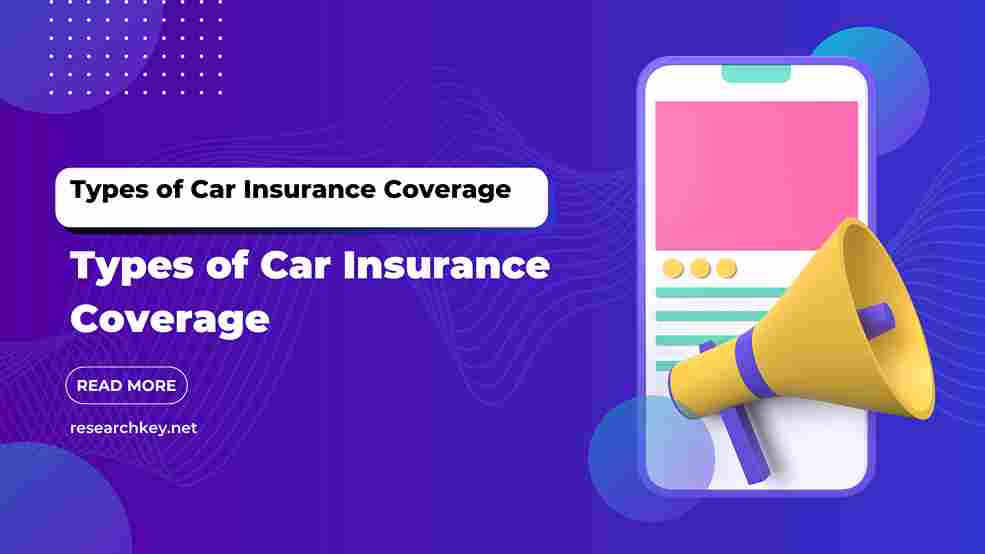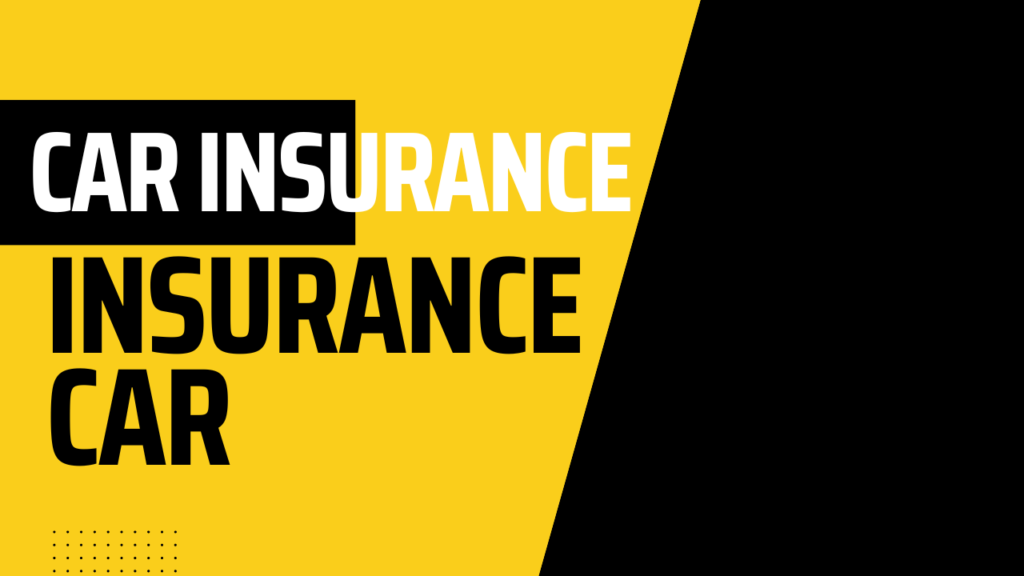This blog article titled “Auto Insurance Near Me” will come out with the various auto
In this Article the following have been discussed:
- Understanding auto insurance, that is the basics
- Who is covered by my auto insurance and under what circumstances?
- Is auto insurance coverage mandatory?
- What other types of auto insurance coverage are typical?
- What is gap insurance and do I need it?
Most states in the U.S. require you to have basic personal car insurance, which gives you some financial security in the event of an accident.
But is it sufficient? What choices are there? Find out how auto insurance functions and what kinds of benefits are offered.
Understanding auto insurance, that is the basics
You and the insurance provider enter into a contract known as auto insurance to safeguard you from financial loss in the event of a mishap or theft.
The insurance provider agrees to cover your losses according to the terms of your policy in return for a premium you pay. Auto insurance provides coverage for:
Property: damage to or theft of your vehicle.
Liability: your legal obligation to others in the event that they are harmed physically or property.
Medical: the price of healing wounds, paying for rehabilitation, and occasionally paying for missed wages and funeral costs
Most U.S. states require basic personal car insurance, but there are differences in the laws.
Each auto insurance coverage is paid separately (a la carte), allowing you to tailor the level of coverage to your specific requirements and financial constraints.
Policies are typically given for periods of six months to one year and are renewable.
When it’s time to renew the policy and pay your premium, the insurance provider notifies you.
FURTHER READING: Oldest law firms in US
Who is covered by my auto insurance and under what circumstances?
Your family members will be protected under your auto insurance coverage whether they are using their own vehicle or someone else’s. (with their permission).
If you give permission to someone who isn’t covered by your insurance to drive your vehicle, your policy also covers that person.
No matter if you’re traveling or commuting to work, conducting errands, or commuting, your personal vehicle policy only covers personal driving.
If you use your vehicle for business, like if you deliver pizzas, it won’t provide coverage.
If you use your vehicle to carry others through a ride-sharing service like Uber or Lyft, your personal auto insurance will not offer coverage.
However, some auto insurers are now providing supplemental insurance products that extend coverage for drivers who operate vehicles for ride-sharing services (at an additional expense).
Is auto insurance coverage mandatory?
States have different standards for auto insurance. Your lender may also have its own criteria if you’re financing a car.
Car owners are required to carry in almost every jurisdiction.
- Bodily injury liability: this protects you from financial responsibility for any harm you or another motorist cause to people while operating a vehicle.
- Property damage liability pays out compensation to third parties for harm you or another driver of your vehicle causes to another vehicle or to another person’s property, such as a structure, fence, or utility pole.
- Many states also mandate that you have medical payments coverage, also known as personal injury protection (PIP), which pays for medical bills associated with accidents to you or your passengers.
Additionally, it will pay for any missed wages and associated costs.
- When a driver who does not have car insurance causes an accident or in the event of a hit-and-run, uninsured motorist policy pays you back.
You can also purchase under insured motorist coverage, which will cover costs when another driver lacks adequate coverage to pay the costs of a serious accident.
Consider including PIP and uninsured motorist coverage to your insurance even if they are optional in your state for added financial security.
What other types of auto insurance coverage are typical?
Most fundamental, legally required auto insurance does not cover harm to your own vehicle, but it does cover damage that your vehicle causes to others.
You should think about the following extra coverages for your personal vehicle:
- Collision pays for damage to your car that results from a collision with another car or another item when you are at fault, such as a tree or guardrail.
While mechanical breakdown or typical wear and tear on your vehicle are not covered by collision insurance, damage from potholes or rolling your car is.
- Comprehensive insurance protects against thievery and harm from incidents besides collisions, such as fire, flood, vandalism, hail, falling rocks or trees, other dangers, and even being struck by an asteroid!
- Glass coverage offers protection against windshield harm, which is frequent. No-deductible glass coverage, which covers side windows, rear windows, and glass sunroofs, is included in some car insurance policies. Or you can purchase extra window protection.
What is gap insurance and do I need it?
New cars depreciate rapidly, and collision and comprehensive insurance only cover the market value of your car, not what you paid for it.
There might be a “gap” between what you spend on the car and your insurance coverage if it’s totaled or stolen.
You might want to think about getting gap insurance to make up the difference to handle this.
Remember that gap coverage for leased cars is typically rolled into your lease payments.
The minimal personal auto insurance that most U.S. states require offers some financial security in the event that you or another person using your vehicle causes an accident that results in damage to someone else’s car or property, personal injury to someone, or both.
But in order to choose the best additional car insurance coverage for your needs, you’ll need to know what’s included, what’s excluded, and what’s optional.
You should think about coverage levels in addition to knowing what kinds of coverage are available.
Why? It’s important to think about getting higher levels of coverage because the state’s minimum requirements might not be enough to cover the expenses of a serious accident.
Here is a list of the various types of coverage that are offered. Some are necessary, while others are optional.
All are priced separately (a la carte), allowing you to tailor the level of coverage to your particular requirements and financial situation.
Mandatory coverage
The following vehicle liability coverage must be carried by car owners in almost every state:
Bodily Injury Liability: This protects you from financial responsibility for any harm you or another motorist causes to people while operating your vehicle.
Property Damage Liability: This insurance will pay for harm you or another driver in your car may cause to another vehicle or to another person’s property, such as a structure, fence, or utility pole.
Frequently necessary insurance
The following insurance must be carried, according to many states: Medical Payments or Personal Injury Protection (PIP) pays medical bills for accidents to you or your passengers in exchange for a reimbursement.
Additionally, it will pay for any missed wages and associated costs.
Uninsured Driver Protection
When an uninsured driver causes a mishap or in the event of a hit-and-run, it pays you back.
Additionally, you can buy underinsured motorist coverage, which will take care of expenses in cases where another driver does not have sufficient insurance to cover the costs of a severe accident.
Consider adding these kinds of coverage to your policy even if they are optional in your state for added financial security.
Optional protection
Basic, legally required auto insurance does not cover damage to your own vehicle, but it does pay for damages to other vehicles you cause while traveling.
You must buy the following extra auto insurance protections to cover this:
Collision: When you are at fault in a collision with another vehicle or another object, such as a tree or a guardrail, this optional coverage pays for harm to your car that results.
While mechanical breakdown or typical wear and tear on your vehicle are not covered by collision insurance, damage from potholes or rolling your car is.
Comprehensive coverage: It protects against thievery and harm brought on by events other than collisions, including fire, flood, vandalism, hail, falling rocks or trees, other dangers, and even being struck by an asteroid.
Glass coverage: Windshield damage is a frequent occurrence, and some car insurance plans include no-deductible glass coverage that also covers side windows, rear windows, and glass sunroofs. Or you can purchase extra window protection.
Careful gap insurance
Dealers or lenders may insist that you buy collision and comprehensive insurance if you lease or loan your car.
But bear in mind that comprehensive and collision insurance only pay for your car’s market value, not the price you paid for it, and that new cars lose value quickly.
There might be a “gap” between what you spend on the car and your insurance coverage if it’s totaled or stolen.
You might want to think about getting gap insurance to make up the difference to handle this. (Be aware that your lease payments typically include gap coverage for leased cars).
When and who are covered?
Whether you are driving your insured car or another person’s car with their approval, your auto insurance will protect you and other family members listed on your policy.
If someone who isn’t covered by your policy drives your vehicle with your permission, your policy still covers them.
No matter if you’re traveling or commuting to work, conducting errands, or commuting, your personal vehicle policy only covers personal driving.
However, if you use your vehicle for business, such as if you deliver pizzas or run a delivery service, your personal auto policy won’t offer coverage.
Be aware that using your car to transport others through a ride-sharing service like Uber or Lyft usually voids your personal auto insurance coverage.
However, some auto insurers are now providing supplemental insurance products that extend coverage for drivers who operate vehicles for ride-sharing services (at an additional expense).
Auto Insurance Near Me,Auto Insurance Near Me, Auto Insurance Near Me,
Auto Insurance Near Me,Auto Insurance Near Me,Auto Insurance Near Me, Auto Insurance Near Me, Auto Insurance Near Me
Auto Insurance Near Me,Auto Insurance Near Me, Auto Insurance Near Me,
Auto Insurance Near Me,Auto Insurance Near Me,Auto Insurance Near Me, Auto Insurance Near Me, Auto Insurance Near Me



